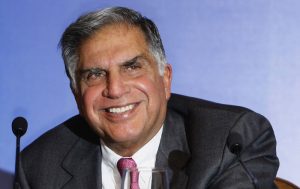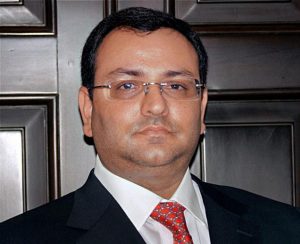Anjani Trivedi/Wall Street Journal
Mumbai,October 28: The board of Tata Sons ,ousted its first non-family Chairman this week, reversing what investors had seen as a fresh start for the tightly controlled group of companies, which generates $100 billion in sales across 29 listed companies and other unlisted ones.
Interests span tea and coffee, IT outsourcing and Jaguar automobiles.
Mistry fired back Wednesday in a letter, accusing his former employer of hiding US$ 18 billion in potential write-downs, across five Tata companies including Tata Motors and Tata Steel Europe.

Mistry complained of split power centers and being cornered into being a “lame duck.” Notably, he alleges potential financial issues at the various companies and that Ratan Tata’s behind-the-scenes maneuvers reduced the board members to “mere postmen,” whose actions risked the company’s violating securities regulations.
Shares of Tata Motors, which owns luxury brand Jaguar Land Rover, have fallen 6% since Mistry’s ousting but still are up 34 percent this year, which makes up about three-quarters of the unit’s revenue, faces storm clouds in its best market, China.
A string of recent quarterly earnings from Chinese car makers points to severe pricing pressures and a turning tide. Tata Motors gets a credit-rating lift from parent Tata Sons. If this is imperiled, things look less robust for its expensive capital structure.
The other major concern should be with Tata Steel.The highly indebted steel company—with approximately 10 times debt to earnings before interest, taxes, depreciation and amortization, according to Lucror Analytics—remains fraught with issues, including the contentious sale of its U.K. operations and a now-teetering plan to combine its European operations with Thyssenkrupp AG.

Shares of most of the Tata listed companies have fallen this week but not by much, given the dysfunction revealed.
Meanwhile, yields on Tata Motors and Tata Steel bonds due 2020 have ticked up since Mistry was ousted, as bondholders fret about whether Mistry’s complaints are real or merely the ravings of a disgruntled ex-CEO.
It is worth noting that Mr. Mistry’s family retains 18 percent of the holding company Tata Sons, so his incentives to create value remain.
Back in 2012, it took the conglomerate a year to appoint Mistry as Chairman when Ratan Tata, the family patriarch, supposedly stepped aside. With no heirs, Tata was, in effect, anointing Mistry, whose sister is married to Tata’s half brother, as the next generation.
Now Tata is officially back at the helm—but with a huge mess on his hands.
























































